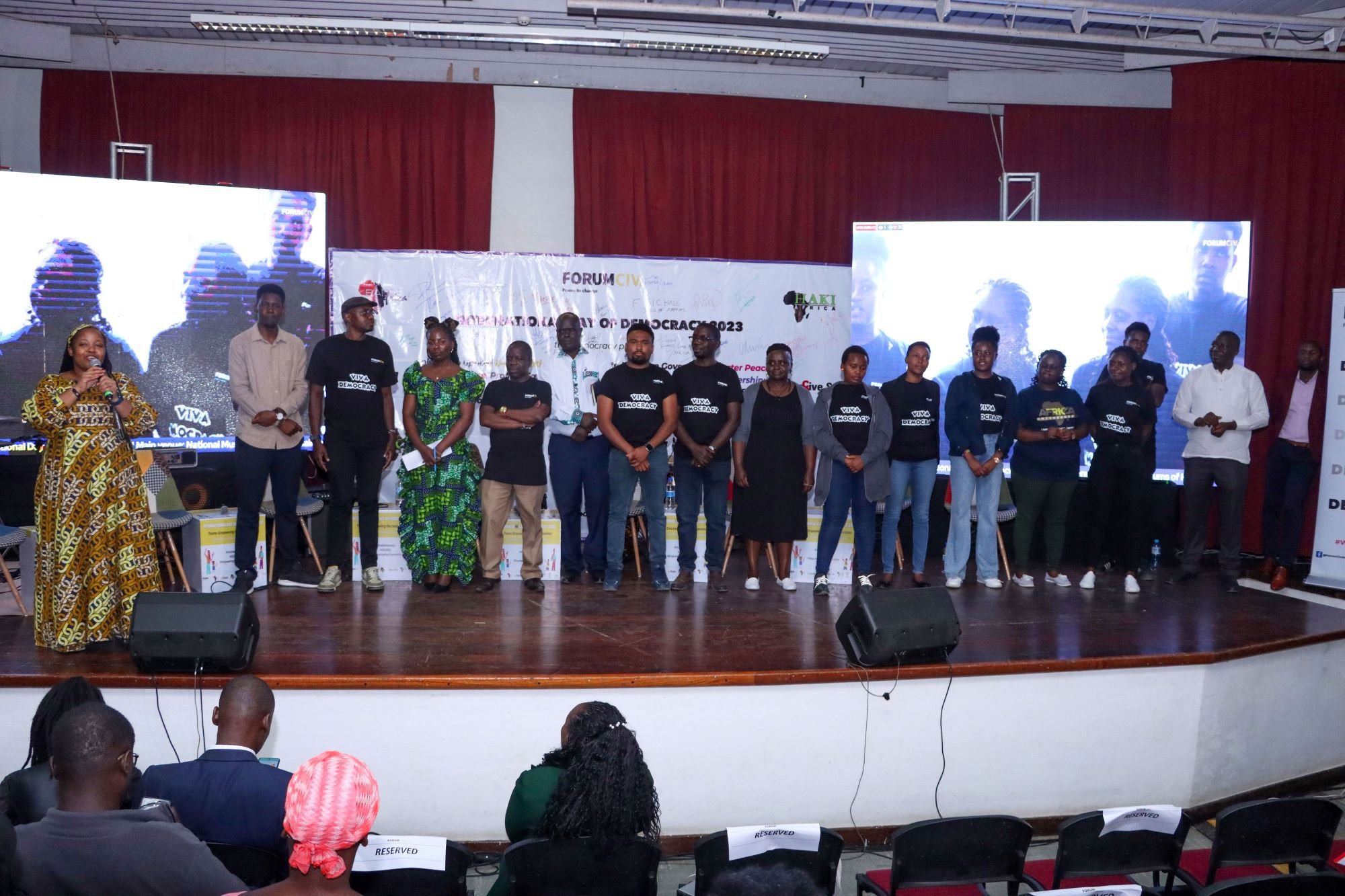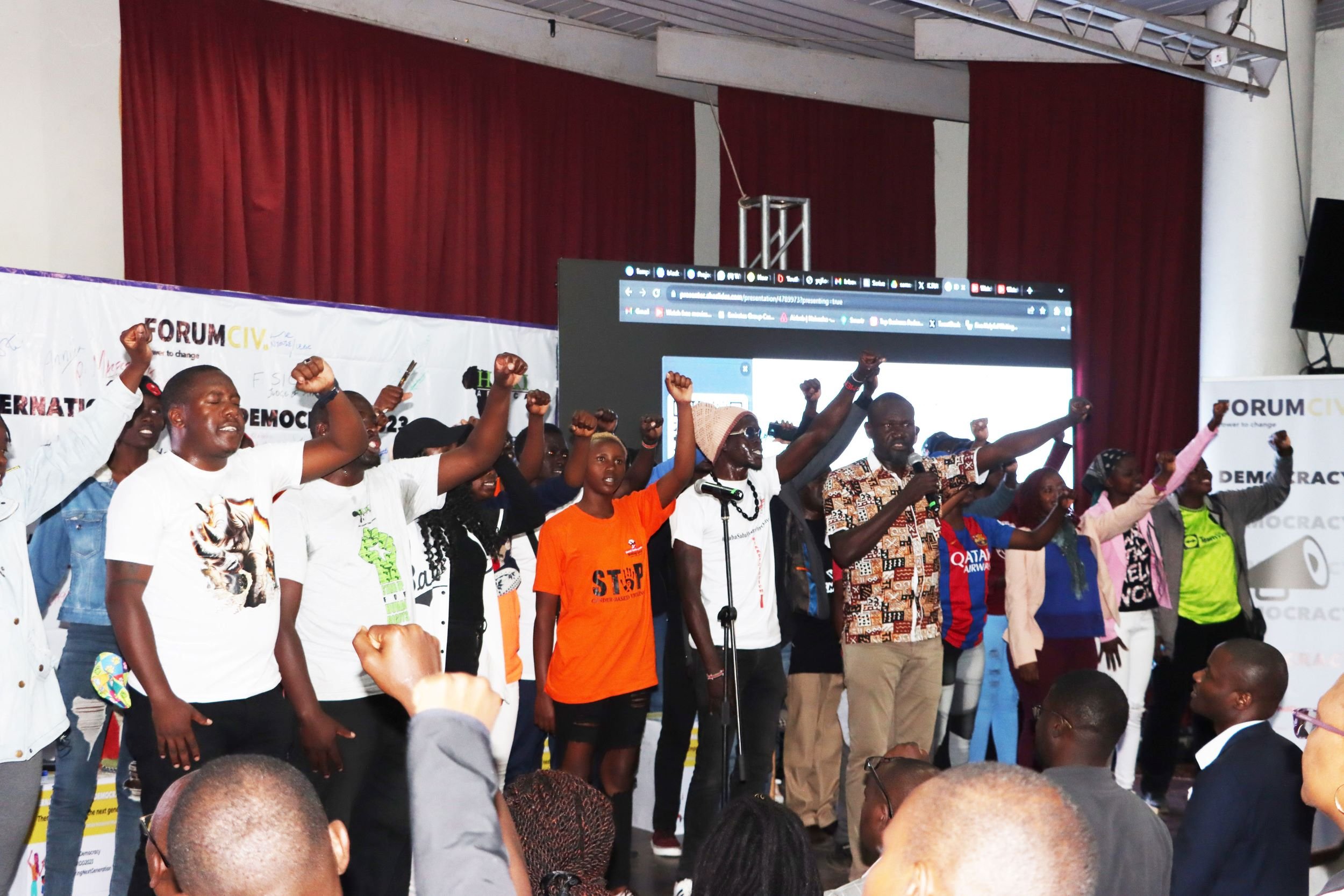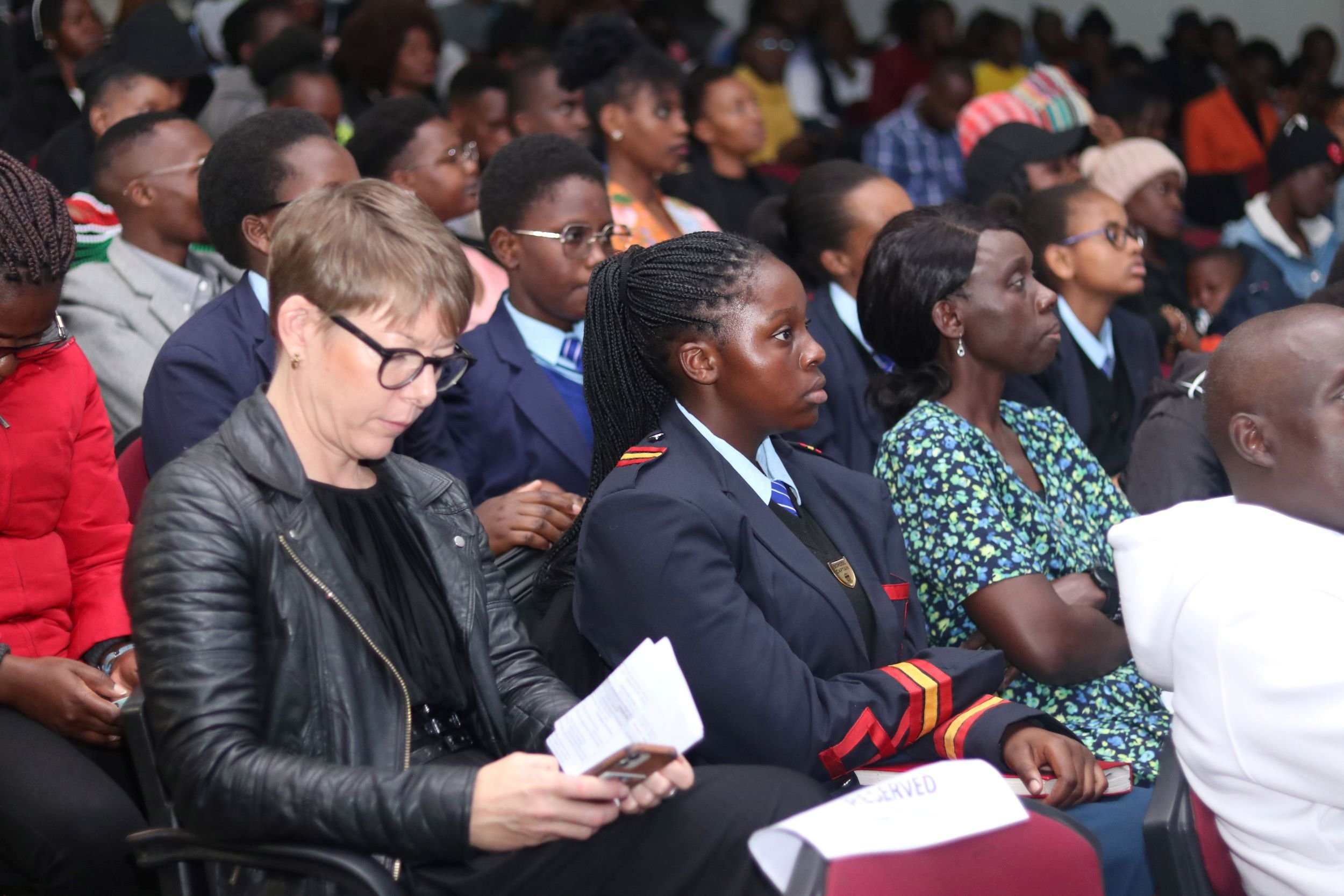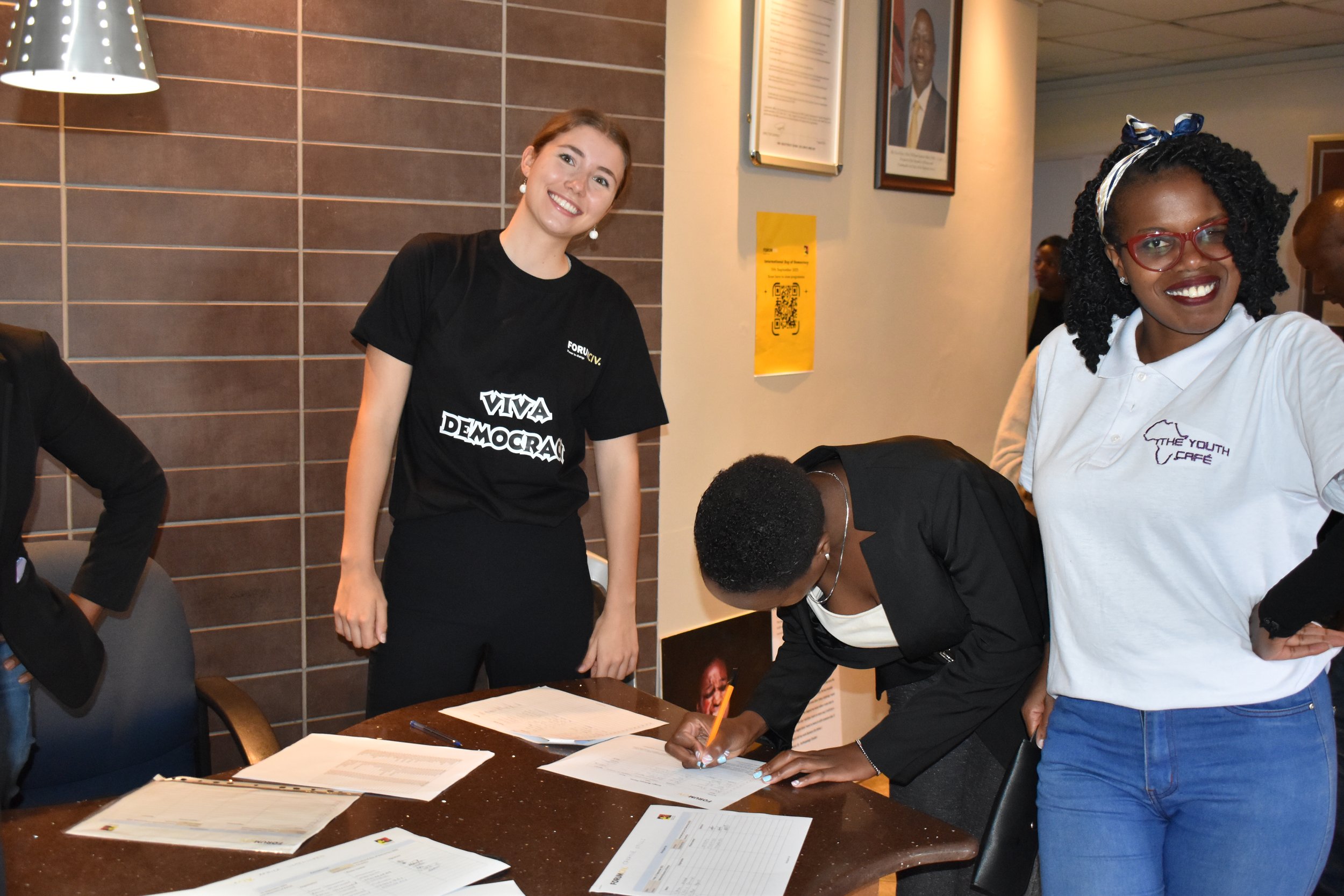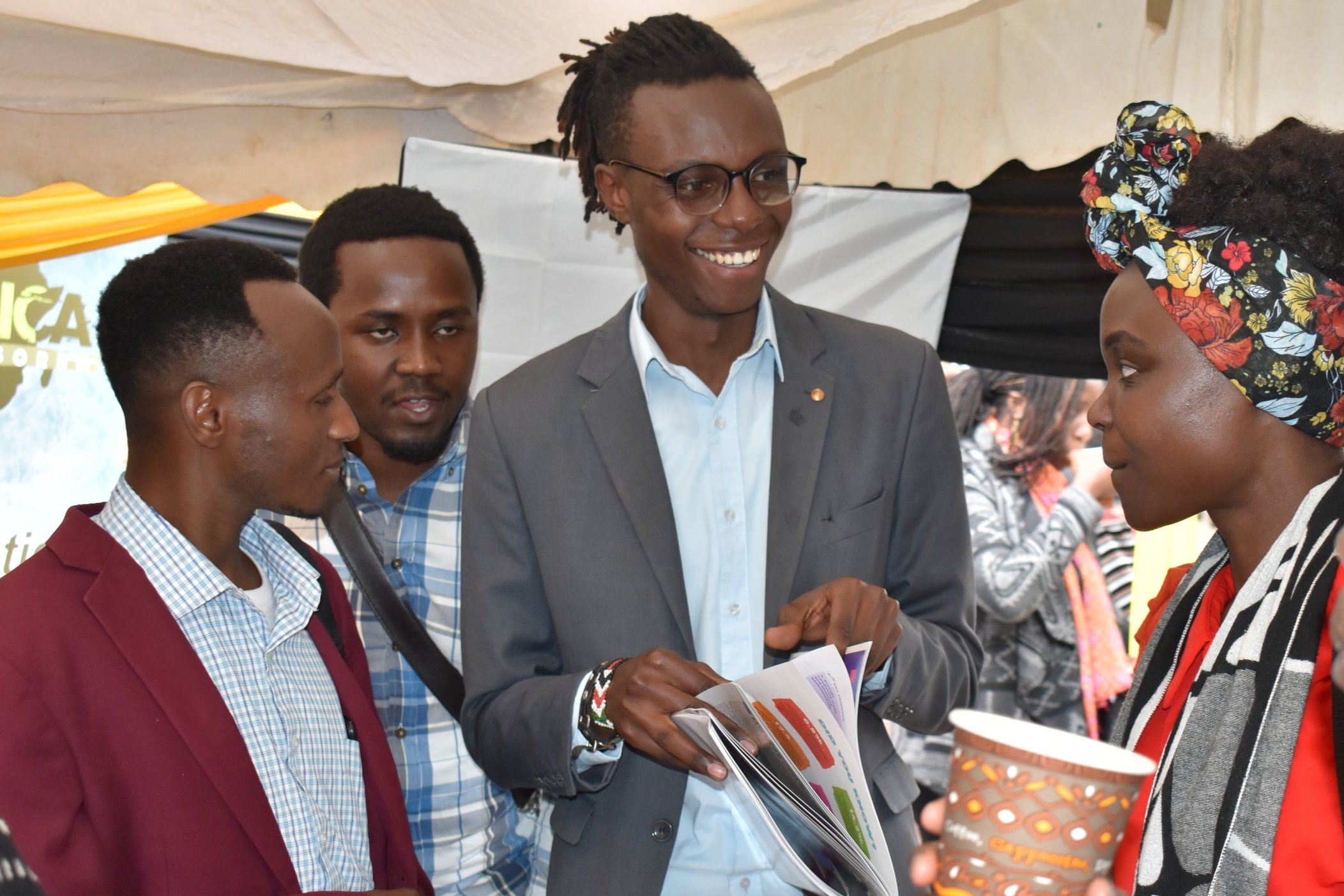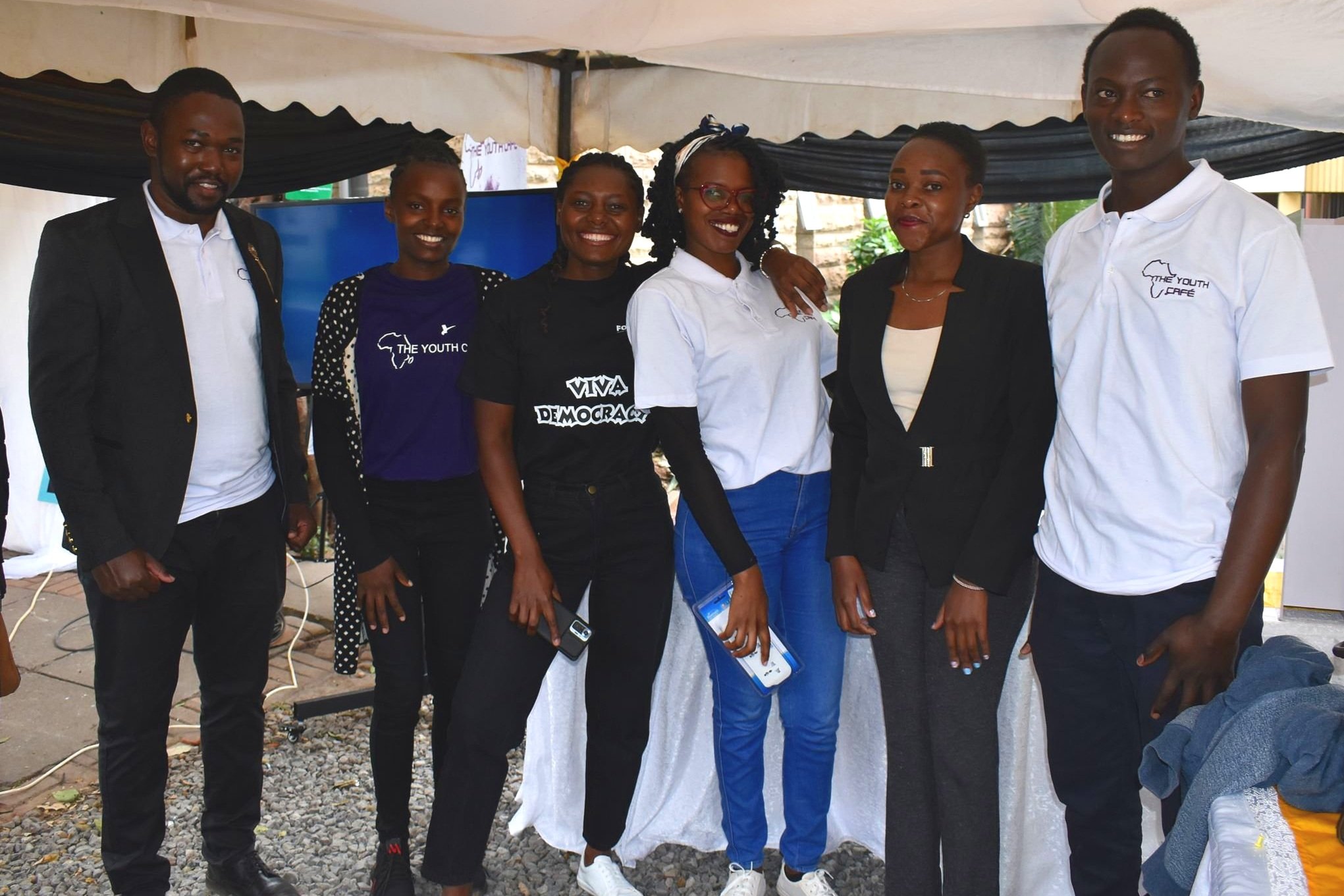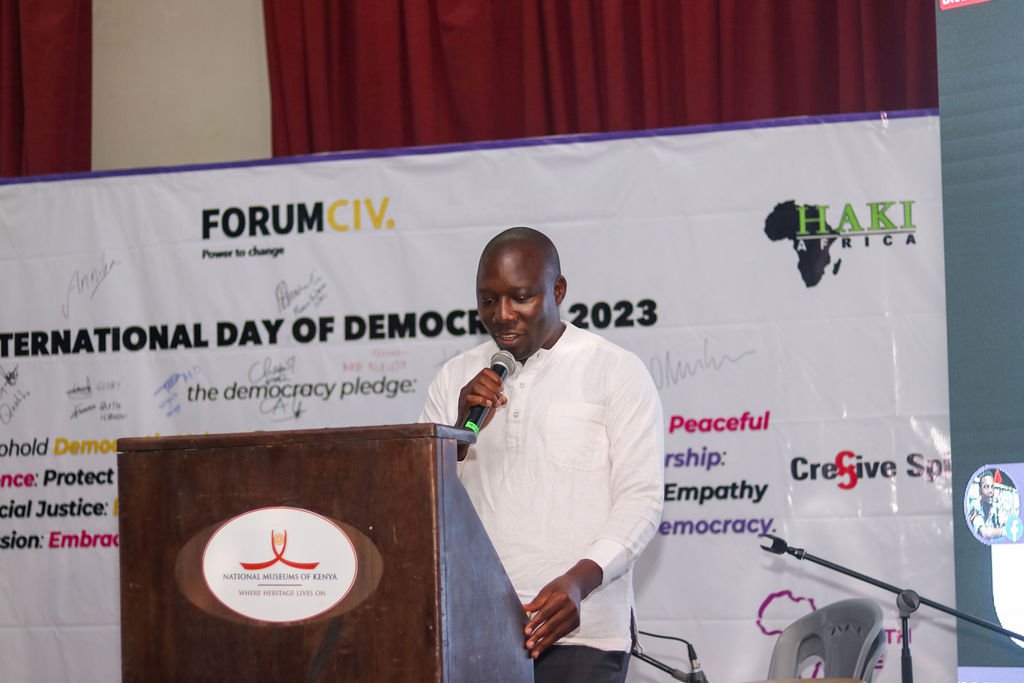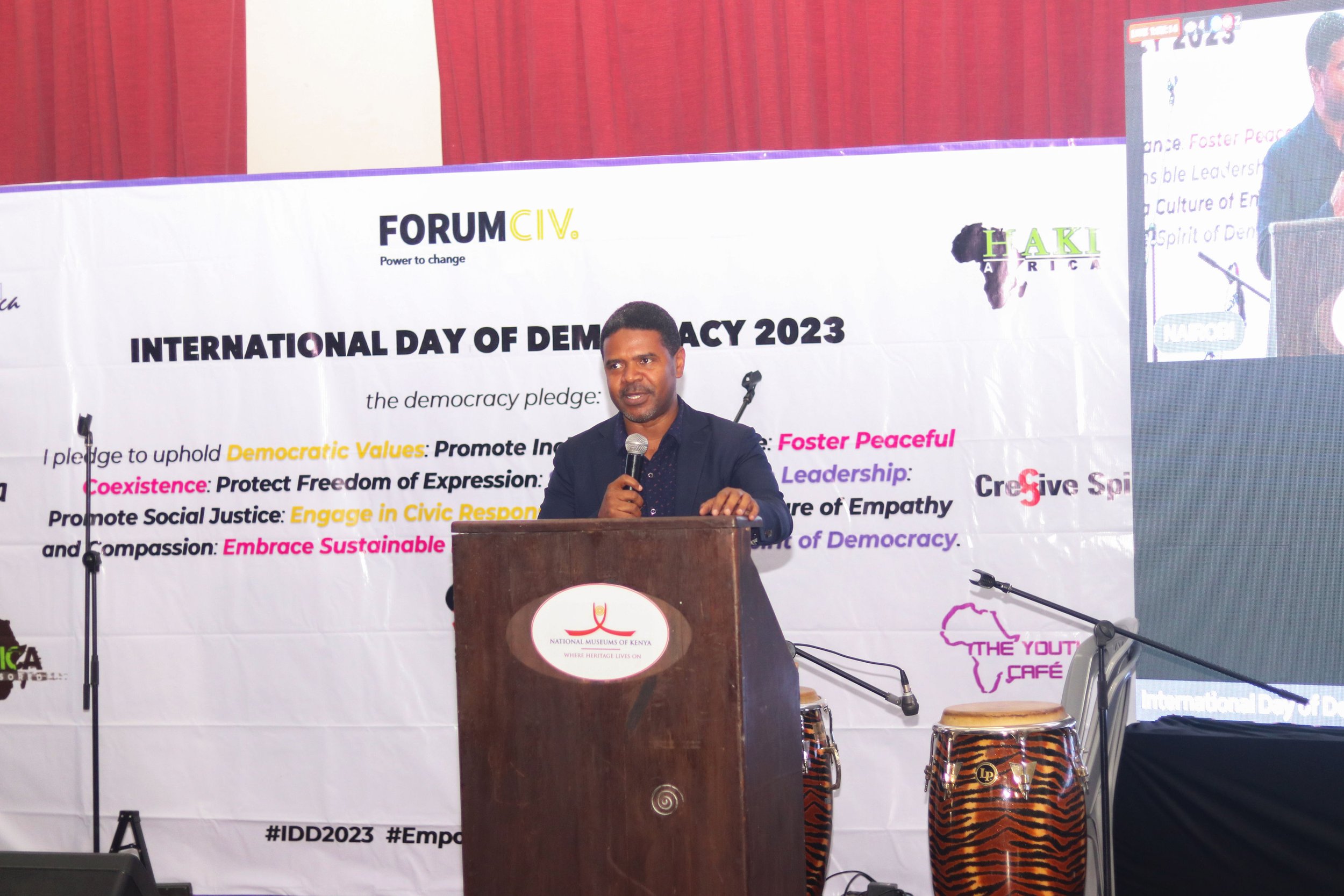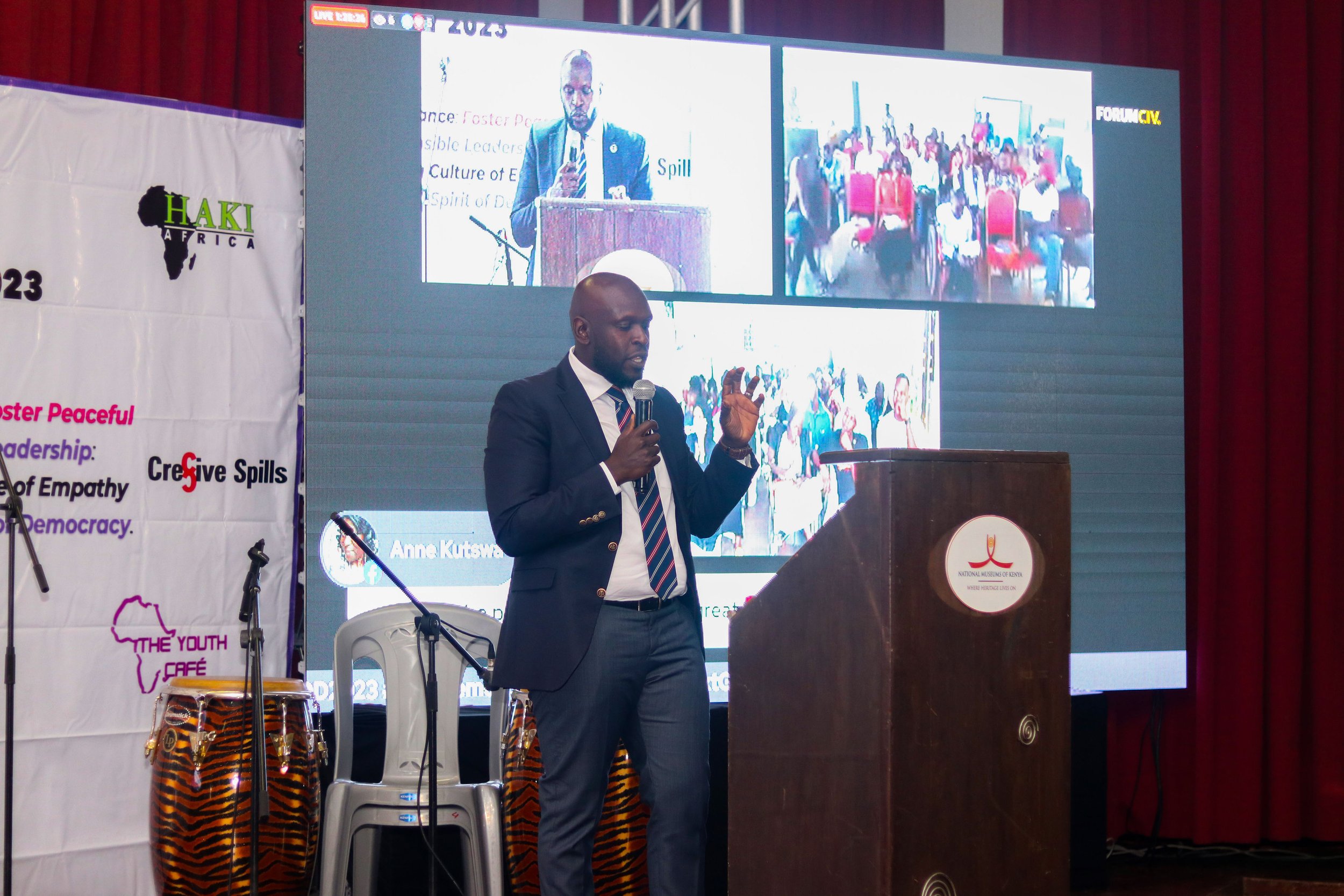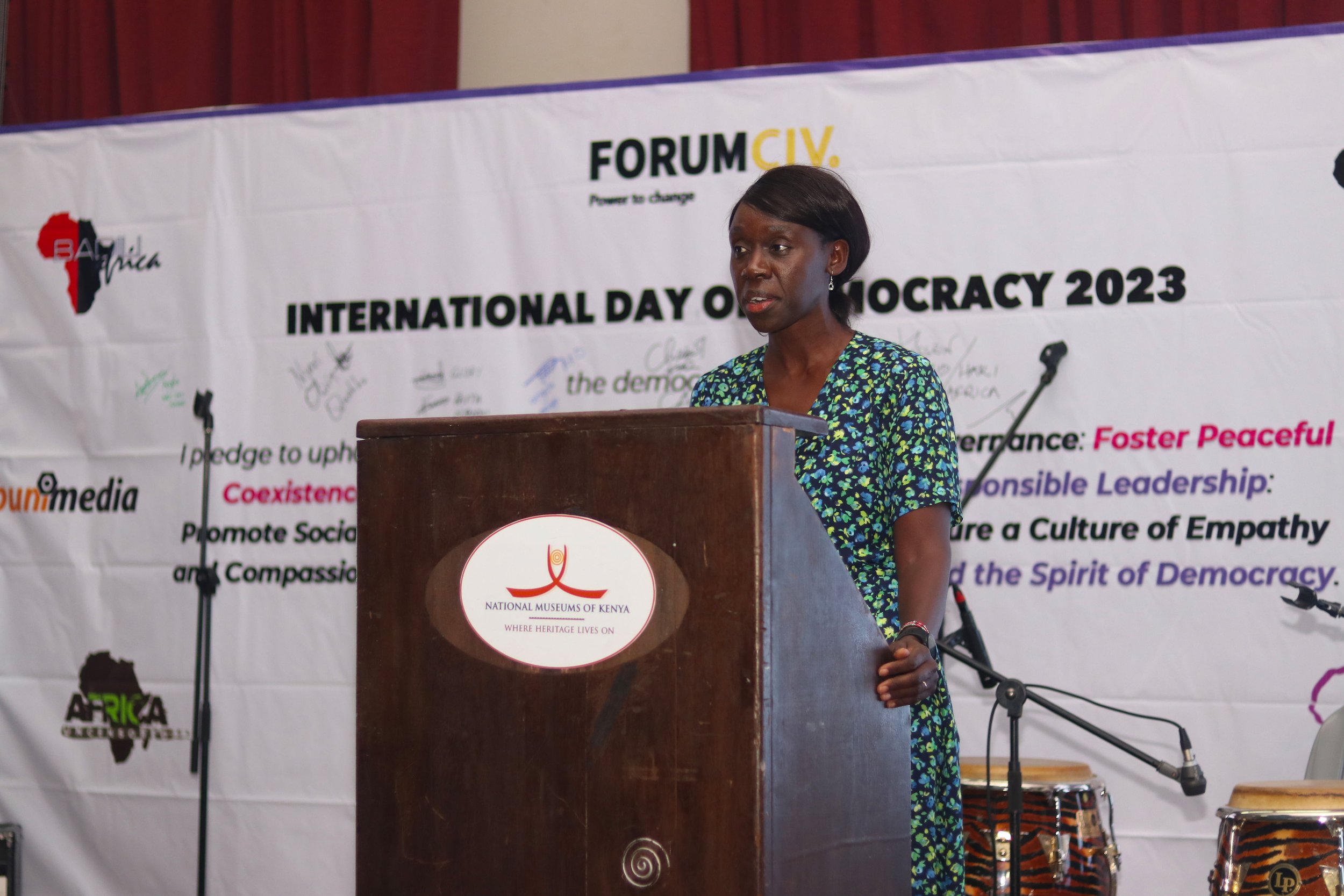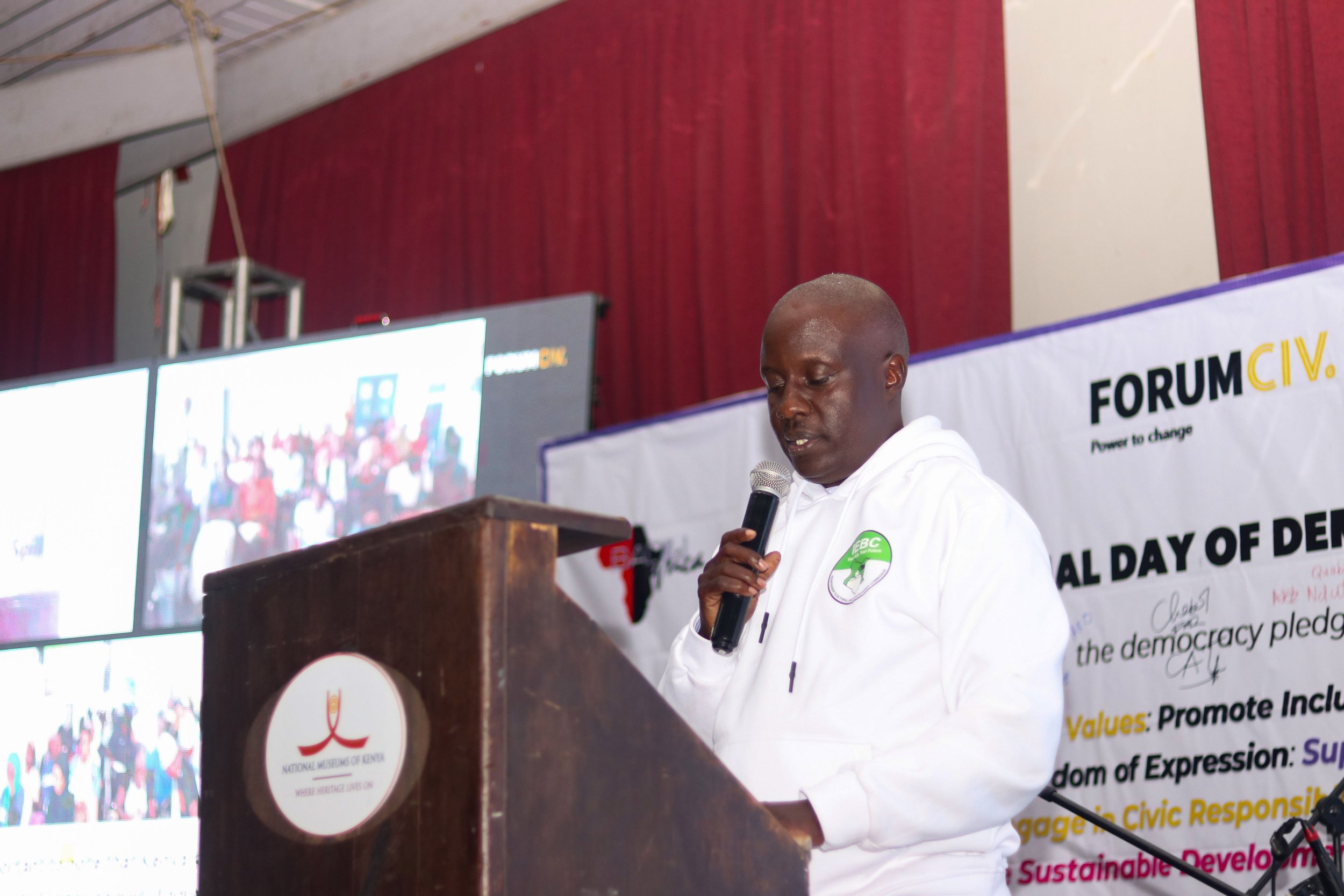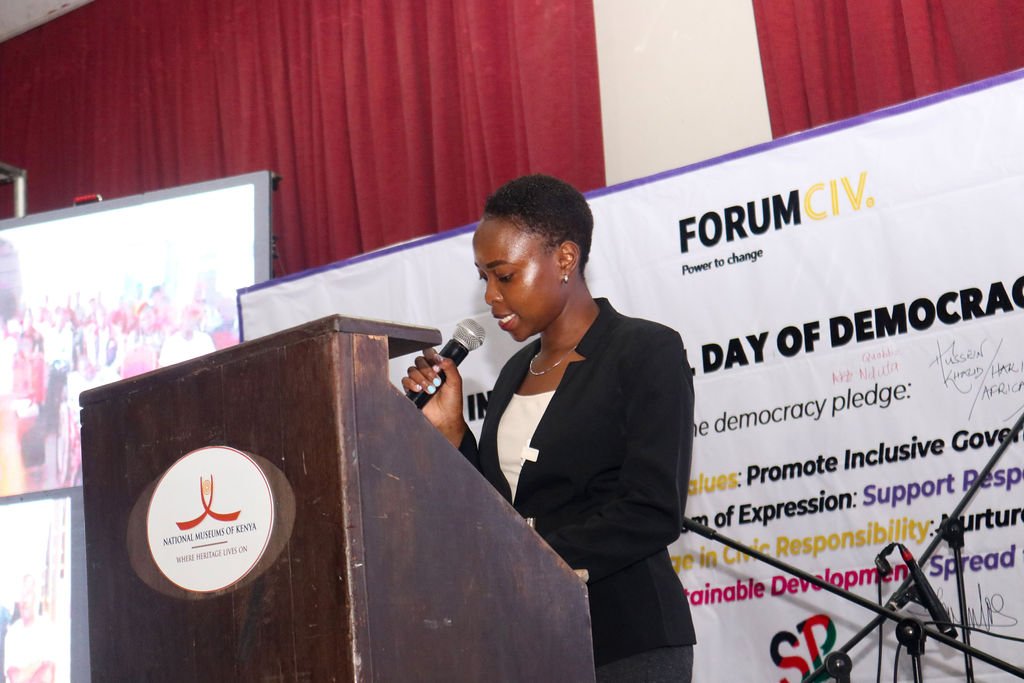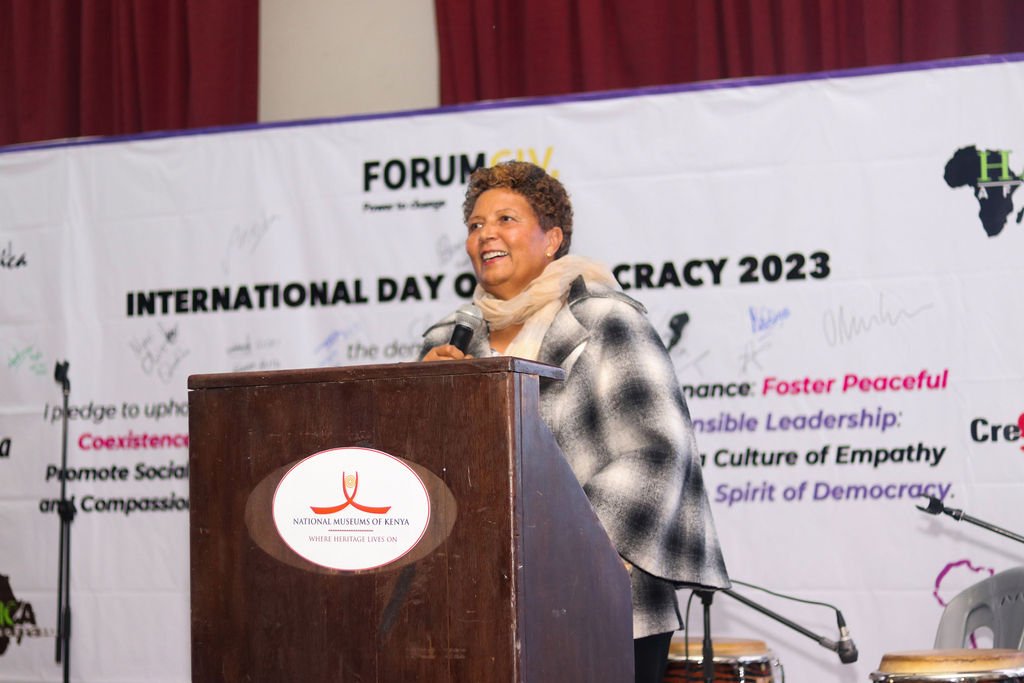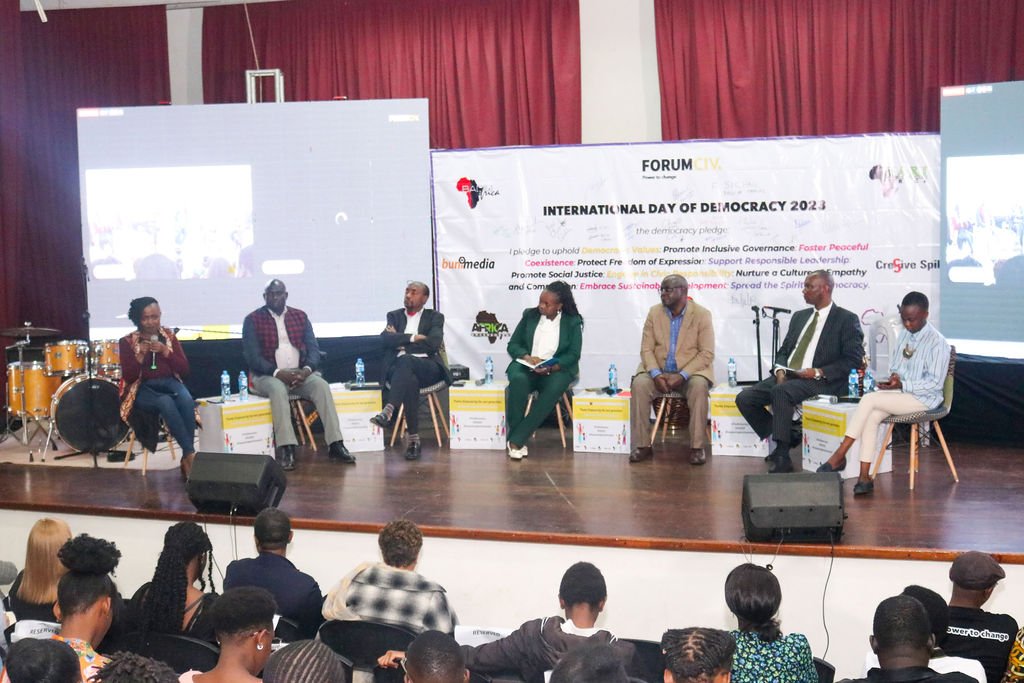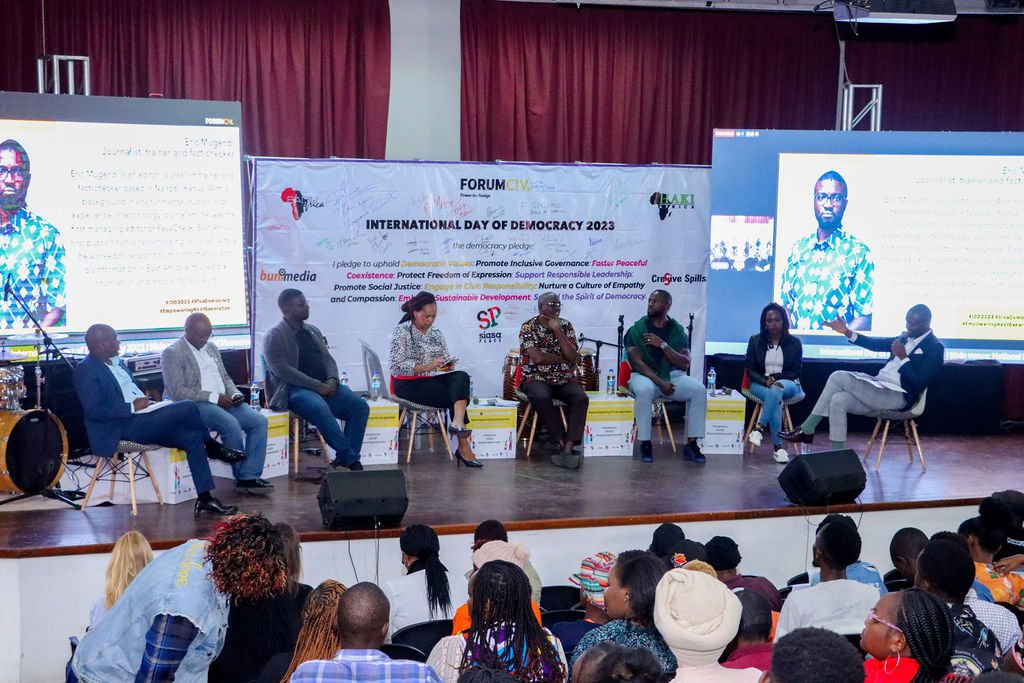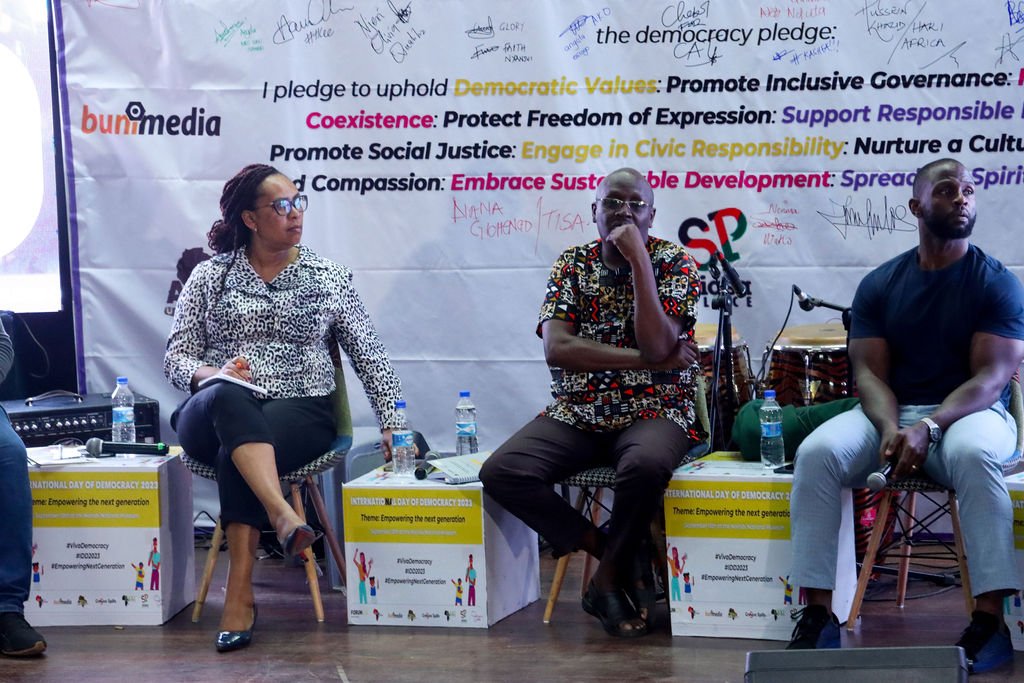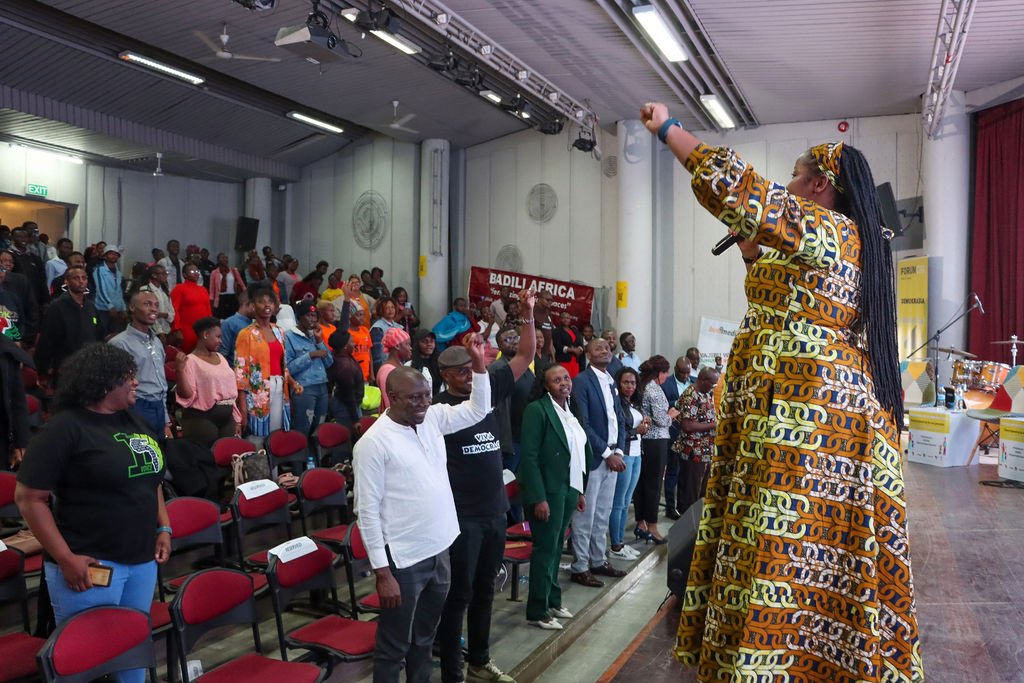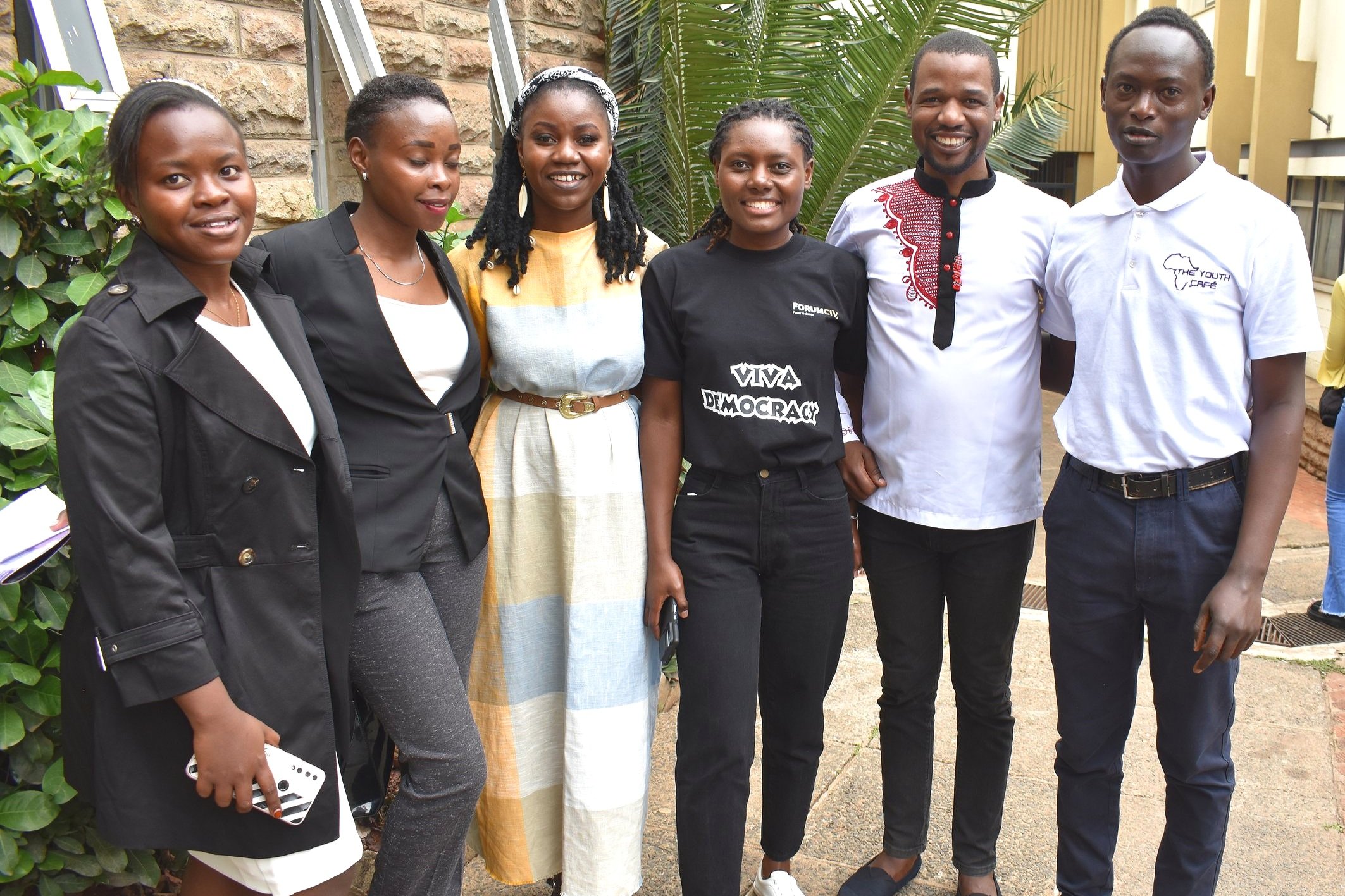Organizers of the International Day of Democracy
Background and Introduction
The International Day of Democracy is a global observance celebrated on September 15th each year. Established by the United Nations General Assembly in 2007, this day serves as an opportunity to promote and uphold the principles of democracy worldwide. It aims to raise awareness about the importance of democratic governance, encourage citizen participation, and foster dialogue among stakeholders to strengthen democratic institutions.
Participants engaging in democratic songs
2023 Theme: ‘Empowering the next generation.’
The 2023 theme for the International Day of Democracy, “Empowering the next generation,” focused on young people’s essential role in advancing democracy and ensuring that their voices are included in decisions that profoundly impact their world. Young people must navigate a world in which democracies are under threat from factors ranging from the proliferation of online mis- and disinformation to rising populism and the destabilising effects of the climate crisis. It is crucial everyone is able to meaningfully participate in the decisions that affect their lives now and in years to come. It is not enough to listen to children and young people. We must support them with massive investments in education, skills-building, and lifelong learning. We must protect human rights and advance gender equality. And we must expand the meaningful participation of young people in decision-making processes at every level.
The Youth Café, in collaboration with our partners ( ForumCiv, Badili Africa, Buni Media, Siasa Place, Africa Uncensored, Haki Africa, and Creative Spills), participated in the planning and execution of the International Day of Democracy celebration Event that took place on the 15th of September 2023 at the National Museum, Nairobi. The event aimed at raising awareness, encouraging citizen participation, and fostering discussions on democratic governance and its impact on society.
The event garnered attention, drawing a diverse audience of at least 337 attendees who participated both in-person and virtually. The event's impact also extended to three satellite watch parties hosted in Kisumu, Mombasa, and Marsabit. These watch parties allowed for even broader engagement and discussion surrounding the International Day of Democracy celebration, enhancing its reach and significance.
A section of the participants actively listening to a speech
Objectives
The International Day of Democracy event sought to achieve the following key objectives:
Promote Democratic Values: Emphasise the core principles of democracy, including transparency, accountability, the rule of law, and respect for human rights, while highlighting the value of diversity, inclusion, and equality in democratic societies.
Strengthen Democratic Institutions: By organizing discussions, workshops, and panel sessions, the day aimed at identifying challenges faced by democratic institutions and exploring potential solutions to enhance their effectiveness and responsiveness.
Enhance Citizen Participation: Encouraging citizens to actively engage in the democratic process, whether through voting, public debates or participation in civil society organisations.
Structure of Activities
Remarks/Speeches
High-Level Panel Discussion
Democracy in Practice
Artistic performances
Online Campaigns
Democracy quiz
Remote audience: Interactive watch parties in Kisumu, Marsabit and Mombasa
Participants Register and pose for a photo during IDD23
Exhibition
The Youth Cafe, among other partners, had a chance to showcase our work by hosting an exhibition during the event, which revolved around the topic of Democracy under the event theme: "Empowering the Next Generation." Our exhibition booth was designed to engage visitors and spark discussions about this theme within the broader context of democracy, featuring our banners and an interactive display and materials, each highlighting various youth-led initiatives that The Youth Cafe has been actively involved in, mainly focusing on youth participation in democratic processes. This allowed for meaningful conversations and interactions between our team and event attendees. The informative materials and multimedia presentations included:
The Kenya Youth Manifesto which is an advocacy material that was developed democratically and representatively by young people from various backgrounds, inclusive of the marginalised Youth. It was drafted and reviewed by young writers and editors. It was subjected to young jurors for scrutiny.
Digital Literacy For Youth Civic Engagement; a handbook Advancing Youth Online Civic Reasoning in Kenya: This handbook was an outcome of a broader initiative dubbed “Advancing Youth Online Civic Reasoning in Kenya”.
The Sauti Ya Vijana Nairobi Project: An initiative that aims to support the emergence of responsive, transparent, and accountable leadership.
The Ignite African Youth Project: An advocacy initiative promoting Youth Political and Civic Engagement’s menu of possible commitments targeted at governments through the Summit for Democracy.
Visitors at the Youth Café Exhibition Booth
The Youth Cafe also gave the participants information on writing and participating in the various ongoing projects. Links were circulated to the participants to express interest in participating in the TYC series of podcasts, roundtable discussions, and case study surveys. Individuals representing various organizations and CBOs were welcome to register their organizations as part of the ongoing organization mapping exercises.
TYC's booth generated considerable interest and engagement from participants, attracting at least 200 visitors who actively interacted with TYC staff throughout the event. These visitors posed questions, shared their ideas, and sought insights on youth inclusivity and multilateral collaboration. The interactive nature of TYC's booth provided a valuable platform for knowledge exchange. The discussions and inquiries from visitors predominantly aligned with the event's theme, "Empowering the Next Generation," and covered various topics related to youth participation in democratic processes.
TYC's Contribution and Impact
Through our booth and interactions with visitors, TYC made significant contributions to the following outcomes:
Youth Engagement: By actively engaging with visitors and sharing our expertise, TYC empowered young individuals, encouraged their active participation, and underscored the importance of youth involvement in democratic processes.
Awareness and Knowledge Sharing: TYC effectively disseminated information on democracy, enhancing their awareness and knowledge.
Idea Generation: TYC's booth was a platform for generating innovative ideas as visitors shared their perspectives and exchanged insights on challenges young people face and opportunities that are there for young people to participate in democratic processes.
Networking and Collaboration: The event provided a valuable opportunity for TYC to network and explore potential collaborations with like-minded organizations and individuals who share our commitment to promoting youth engagement and democratic values.
TYC's participation in the exhibition showcased our dedication to empowering the next generation and facilitated meaningful discussions, knowledge sharing, and cultivating partnerships to advance these important goals.
The Youth Cafe’ Team at the IDD
MAIN EVENT OVERVIEW
Introductory remarks
1. The Regional Manager, Eastern and Southern Africa, Forum CIV
Jackson, while welcoming everyone to the national celebrations of this year, emphasised the role of youth in democracy. He called upon the youth to understand democracy through the global lens to understand and increase opportunities for democratic participation. The youth had an obligation to be aware of the types of global challenges that affect democratic processes and how the global communities have been able to avert these weaknesses and improve the conditions for development. One central way youth could observe the global community was through the use of social media. The majority of youth today gather knowledge from social media, and if used well by youth, it would facilitate their understanding of networks, participation and awareness of democracy.
Young people must also use their voices for better inclusive societies and protect human rights; he stressed that youth should not be silent on issues of democracy.
Further, he mentioned the importance of
Supporting youth in education and skills development.
Protection of human rights and increasing gender equality for participation.
Expanding meaningful spaces for political and democratic participation.
Freedom and democracy as tenets of modern societies
Listening, engaging and involving all, especially the youth, in leadership and decision-making.
2. Khalid – Executive Director, Haki Africa
Khalid – Executive Director, Haki Africa
Hussein described democracy as a rule for the people, with the people, and done by the people. Therefore, it is important for the people to be leaders of democracy as stated in Chapter 6 of the constitution, which is a chapter on leadership and Integrity requiring ‘’State officers to be guided in their day-to-day conduct by principles of leadership and integrity which, among other requirements, include: being objective and impartial in ensuring that decisions are not influenced by nepotism, favouritism or other improper motives.’’
He called upon the youth to be leaders when performing different activities in their lives and in relating with other Kenyans. Youth should not ask what Kenyans could do for them but what they could do for Kenya.
He noted that ‘’youths are not leaders of tomorrow but today’’. Thus, they should demand to be included in every decision-making process so as to bring about change in democracy.
He also urged the CSOs to collaborate on improving democracy, particularly for the youth.
“Youths are not leaders of tomorrow but today.”
3. Cheboi - Legal Officer, Office of the Ombudsman
Cheboi - Legal Officer, Office of the Ombudsman
Cheboi - Legal Officer, Office of the Ombudsman Cheboi highlighted the role of the Office of the Ombudsman in safeguarding the sovereignty of the people and promoting transparency and accountability within the government.
He discussed their mandate, which includes two key aspects:
Promoting administrative justice.
Oversight and access to information.
In regards to the second mandate of access to information, he stated, “In the past, citizens were often denied access to information, and government information was treated with utmost secrecy. However, in 2010, under Article 35 of the Constitution, the Access to Information Act was enacted in 2016 to reinforce this constitutional provision. Importantly, there is no specific format for citizens to request information, making it easier for them to access the information they need. Requests can be made in a language understood by the citizen, either in English or Kiswahili. The government is obliged to provide access to information within a reasonable time frame, usually within 21 days, or in urgent cases, within 48 hours.”
Cheboi’s message on democracy to the youth was on the role of the Commission on Administrative Justice Act of Kenya. He enlightened the youth on the importance of this commission, particularly on ‘’investigating any conduct in state affairs, or any act or omission in public administration by any State organ, State or public officer in National and County Governments that is alleged or suspected to be prejudicial or improper or is likely to result in any impropriety or prejudice.’’ Through this role, the youth and other Kenyan citizens had the right to report any problem faced when using government offices. The youth had the right to access information about their governance.
He stressed access to information as providing accountability and openness towards public governance and holding elected leaders and public officials to accountability as one important tenet of democracy.
4. Beatrice Amollo- Registrar of political parties, ORPP
Beatrice Amollo- Registrar of political parties, ORPP
Beatrice called upon changing the mindset of the youth for a better democracy. She stressed upon nurturing youth talents in different activities to increase youth interest in democracy.
While noting that Kenya, through the CAK 2010, put in place a complex electoral system, she called for the full participation of young people in this process.
The ORPP will continue to play its role. Still, more importantly, citizens have to push for changes by joining and participating in party politics to improve the practice of democracy in the country.
The youth have to rise up, join or even form their political parties; they have to strive to change the attitude that politics belongs to a different age.
Some of the activities she proposed for changing youth mindset include:
Use of music to increase awareness of democracy.
Encouraging youth to join political parties for better civic education.
Developing youth wings for political parties.
Inspiring young women to apply for political leadership positions.
““I urge all duty bearers represented here to give the younger generations platforms to express their issues,” ”
5. Moses Sunkuli - Director of voter registration, IEBC
Moses Sunkuli - Director of voter registration, IEBC
Sunkuli provided a brief history of Kenya’s democratic processes since the 1960s and noted that Kenya has improved its democratic process. Today,
Kenyans in the diaspora have the right to vote.
Young people can vote in school.
Prisoners can vote.
Any citizen has the right to join a party.
Youths can be elected to different seats if they choose to vie.
Candidates have a fair chance at election, and the presidential candidate must receive 50+1 votes.
There are special seats for proportional representation for the minorities and under-represented groups.
However, he noted that democracy in Kenya is still a work in progress. The youth have the obligation to improve democracy through participation in the Electoral law.
6. Moi Girls Secondary School student leaders
Representing the new generation was Moi Girls Secondary School, with key members including Olivier Njeri as the school leader, Angela Osiago, Winnie Nduta serving as the deputy school captain for academics, and Angela Gitonga as the deputy school captain for administration.
Glory, the school captain, highlighted the critical role that children play in safeguarding democracy. She emphasised that children are the future of society and will inherit the world created by the current generation. Therefore, it is crucial to prepare and empower them.
She also stressed that young people can positively influence their families and friends, thereby upholding democracy within their immediate circles. Additionally, she mentioned the potential of using technology as a force for positive change in democracy, emphasizing the power of this asset.
7. Faith Wambui Nyanjui - a 22-year-old politician,
A political aspirant in 2022, and an active citizen, delivered a speech in which she shared her journey. At the age of 21, she ran for a parliamentary seat in Kigumo, driven by an unwavering passion to challenge the existing status quo, even though her attempt was unsuccessful.
She referenced Thomas Jefferson's idea that we don't merely have a government by the majority, but rather a government by the majority who actively participate. Faith emphasized that democracy is not just a concept; it's a way of life and a beacon of hope that promotes equality and ensures the voices of all citizens, regardless of age or background, is heard.
In the spirit of Nelson Mandela's quote, "It always seems impossible until it's done," Faith encouraged active participation rather than passive spectatorship in shaping the fate of their nation. Holding the government accountable through collective voices and fostering solidarity among the youth were seen as essential steps.
Faith stressed the importance of empowering the next generation, which is the current generation, by providing them with the necessary tools and information to bring about positive change in the world. She drew inspiration from Malala Yousafzai,
“One book, one pen can change the world”
In conclusion, Faith invoked Abraham Lincoln's idea that a government of the people, for the people, shall not perish from the earth, emphasizing that while the path may not be easy, it is achievable, and what seems impossible can be accomplished through determination and action.
Keynote Speech
Lady Justice Fatuma Sichale - Representing The Chief Justice, Martha Koome.
Lady Justice stressed the value of the constitution as it empowers and justifies the role of democracy under Article 4:2, which states that ‘’Every person shall enjoy the rights and fundamental freedoms in the Bill of Rights to the greatest extent consistent with the nature of the right or fundamental freedom. (b) Adopt the interpretation favoring the enforcement of a right or fundamental freedom
Hence, it is upon us to exercise democracy in all areas of our lives for inclusive transformation, including social, political, and economic. Africa, particularly Kenya, has been transformative in its development and continues to disappoint the international media with its peaceful elections. Kenya continues to improve its democratic processes not only through voting but also through civic education.
It is, therefore, upon the Kenyans to elect good leaders as we owe it to ourselves to see a better society.
She recalled the famous quote on democracy from the late President Moi:
“Siasa mbaya maisha mbaya”
First Panel Discussion
Moderator; Nerima Wako
Panelists:
Kenneth Njiru: Social Entrepreneur, CEO of Ungwana Institute
Miss Diana Gichengo: TISA
Hon Victoria Zila: MCA, Kakamega
Evans James: National Chairman of the Political Parties Liaison Committee
Paul Masese: CEO of the Centre for Enhancing Democracy and Good Governance
Jacktone Nyonje: Director of Voter Education and Partnership, IEBC
Summary of the discussions from the panel.
The constitution of Kenya is the binding document that promotes democracy. Democracy requires youths to participate through civic education- not only in/during voting but also in understanding laws and governance in Kenya. Youth must participate in democracy through collaborations with government ministries, CSOs, and human and development organizations. They must be civil by the law.
Kenyan Democracy has evolved over the last 60 years; we still have much more to do to mature our democracy. Learned experience from some of the young politicians that it takes more than just goodwill to succeed in politics in Kenya. One has to be prepared to use all legal tactics and a high level of networking. Politics in Kenya has become expensive and almost beyond the reach of ordinary youths.
The youth are to speak on democracy and step up for change. Democracy is not only embedded in political participation but in inclusive transformation. The youths must ensure they engage in skills development, political enhancement, talent nurturing, and continuous learning through peers, social media, schools, society, and other global engagements. Young people should summon the courage to speak on societal challenges, particularly democracy. They should be the change they seek and internalize the constitution as a guide to democracy.
Youths must assert themselves as Citizens and actual participants of democracy or become either idiots- people who do not understand or participate in democracy or tribalists- people lured to only be democratic towards their tribes.
SECOND Panel discussion
Moderator: Willice Onyango - Executive Director, The Youth Cafe
Topic: The digital space and its influence on democracy- Impact of misinformation and disinformation in democracy. - Future of Kenyan elections – possibilities of moving it online
Panelists:
Caroline Gaita - Mzalendo Trust
John Allan - Africa Uncensored
Eric Mugendi - Environmental Journalist, Trained Fact Checker
Allan Chacha - UCSPAK
Mulle Musau - National Coordinator, Elections Observation Group
Wanjiru Nguhi - Head Of Fumbua Program (Podcast)
Silas Kivuti - ICT Service Delivery, IEBC
Summarise the discussions from the panel.
We have to contend with the growing influence of digital technology and grow in understanding and functional use of the same for our lives and in society's activities, including democracy.
The biggest asset of society is the youth; they should shy away from new developments and instead should embrace and turn around the opportunities in the expanding media space to project their potential and ensure it supports them to grow in democracy and service to society.
There are many dangers in the new and expanding technological space that equally threaten the growth of democracy; disinformation and misinformation, among other vices, will continue to threaten the well-being of society. We should keep vigilant and consistently fact-check the information thrown on our faces.
The uncontrolled power of some entities that run and control the digital space should not deter us from seeking to turn it into good and our service. We should seek to ensure that the necessary platforms to govern and regulate some of these entities are in place.
Youth should seek to under the role of public institutions in Kenya and how they can work with them to ensure they grow in democracy and public accountability. The youth should enlist in observing.
The IEBC listens to everyone in Kenya and involves the youth in promoting democracy. The youth have majorly used social media to raise concerns about IEBC issues, which IEBC has evaluated and monitored and tried to improve the political and election processes. The youths must participate, contest, register, and educate themselves on democracy to find the right information.
Social media contributed to disinformation, and most organizations, including the government, media houses, and organizations, have tried to fact-check and release relevant information. Some ways institutions have averted dis-information include:
Creation of platforms such as recognized websites/ institutions/Pesa Check that provide relevant information on budgeting at the devolved units.
Increased Media Literacy Programmes.
Amplifying information on both social and physical spaces.
Providing young people with opportunities while offering mentorship to increase awareness of proper information.
Disrupting news if needed and wrong information is provided.
Demanding accountability for where the information is from and why.
Providing information in the vernacular to reach more audiences and for audiences to receive original information without translation.
A section of the Panelists
While there are many ways in which we ought to seek to remain above the ills and negatives coming through from the digital space, part of our solution will be increased vigilance use of developed frameworks to counter-check disinformation and misinformation.
The youth have to embrace a robust value system that will ground them in serious cultural change towards embracing technology in a way that upskills them but also puts them on a trajectory of solutions thinking, fact-checking, context creating, and ensuring that they incrementally take on the emerging tools in the digital space with knowledge.
There is a need for a cultural shift to welcome the new without losing our grounding principles in the commonality of humanity and the values of participatory democracy, holding elected and public leaders to account.
Finally, while we yearn for the new and seek to use the digital space to enhance our democracy, we should equally fight the vices of impostor syndrome, gender disinformation and misinformation, cyberbullying, and the fight against the post-truth scenario, where more lies are being peddled then the truth and political bad manners.
The youth have learned to unlearn the bad, embrace the truth, and use modern digital technology to enhance the good in society.
Lessons Learned
Empowering the next generation will take the whole ecosystem of society. The current leaders encourage the youth to take up leadership positions, but also, "the old guard" has to be willing or be incentivized to pass on the button.
Democracy throughout the world and over the years comes at a cost, sacrifice, personal levels, and commitment; today's youth need to be radicalized to pick up the mantle where their seniors have left it off
To continue making a profound impact not only in Kenya but across the world, several forums similar to this should be organized to continue enabling different stakeholders to come together and discuss matters related to democracy and to empower the next generation.
Organizing and refocusing on the true ideals of democracy is a continuous process. different levels of the understanding of democracy will need to be taken in by different groups of people as long as they find an opportunity to be inclusive, listen to each other, and ensure minorities have their say and rights.
To safeguard democracy, there ought to be checks and balances, institutions that will hold the fort on behalf of citizens and be the anchor of accountability.
The flow of information, the processing of the information for making decisions, is critical to the functioning of democracy.
Digital space is an opportunity and a threat at the same time, the youth has to embrace the culture of political good manners in the use of technology to grow democracy.
Reflections
A section on participants reciting the Democracy Pledge during the IDD23
Democracy is a work in progress; we all have a role to play to ensure democracy in our country works for us.
While CAK 2010 is one of the most progressive constitutions in the continent, it will work for us if it is fully implemented. This is an ongoing process that needs citizens to participate at their levels.
Perpetual vigilance is the price we have to pay to ensure this democracy works. For us in Kenya, this means working together with all the constitutional commissions, ensuring that we stay alert to their work, and guarding against excesses of the executive and other forces that threaten the independence and operations of these institutions.
Public participation: while this has not been fully legislated at the national level (and is not fully enforceable) in many of our counties, it is crucial that when we engage, we be informed; it behooves every citizen to adequately inform ourselves on the matters of public concern so that they can participate meaningfully.
Empowering the next generation will take several elements.
The willingness of the young people to take the mantle by stepping onto the stage, taking part in political party politics, and vying for positions.
Working with the older generations to learn the ropes, but at the same time innovating within the space.
Learn and use technology to the advantage of democracy.
Speak up on issues of society.
Nurturing talents towards leadership.
“It was a Great Day, joining various stakeholders and policymakers in celebrating The International Day of Democracy in Nairobi—many thanks to Youth Cafe’ and its partners for organizing this powerful event. We’ve gained insightful knowledge on democracy and Governance and how we young people can be engaged actively to foster the Desired change that will transform this country for the better. Happy IDD 2023. - Participant
Thanks to the youth cafe fraternity for the opportunity to be in their engagements; I am honoured and hoping for more engagements in the future. Thank you- Participant”
The youth Café Staff and Visitors pose for a photo


